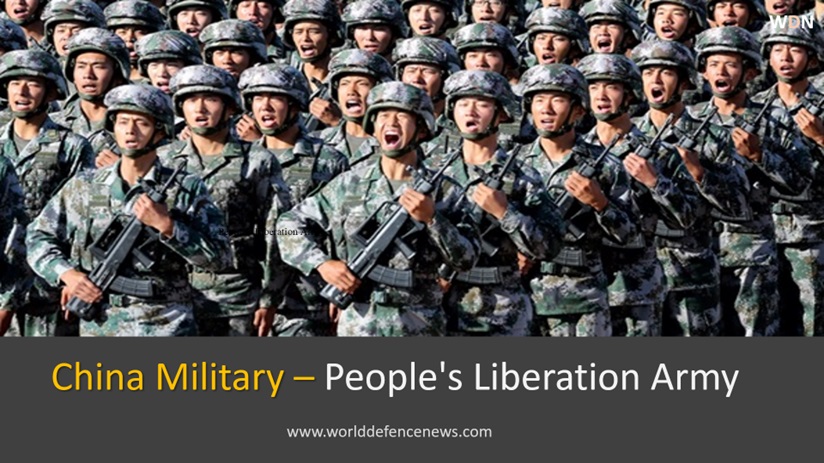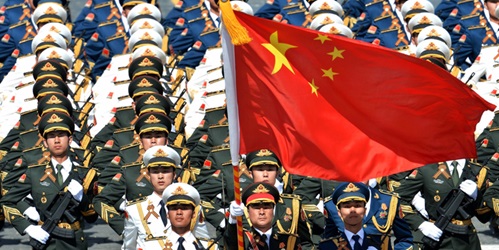
Chinese Military
Peoples Liberation Army ( PLA )
The Peoples Liberation Army (PLA) is the military force of the People’s Republic of China (PRC). It was founded on August 1, 1927, during the Chinese Civil War, by the Chinese Communist Party (CCP) under the leadership of Mao Zedong.
The PLA is the largest standing army in the world, with over two million active-duty personnel, as well as a reserve force of approximately two million troops. In this article, we will discuss the history, organization, and capabilities of the PLA, as well as its role in modern Chinese society and the international community.
The PLA consists of five service branches which include the Ground Force ( Army ) , Navy, Air Force, Rocket Force, and Strategic Support Force. The PLA operates under the leadership of the Central Military Commission (CMC) with its chairman as commander-in-chief.
The People’s Liberation Army (PLA) is the military force of the People’s Republic of China (PRC). It was founded on August 1, 1927, during the Chinese Civil War, by the Chinese Communist Party (CCP) under the leadership of Mao Zedong.
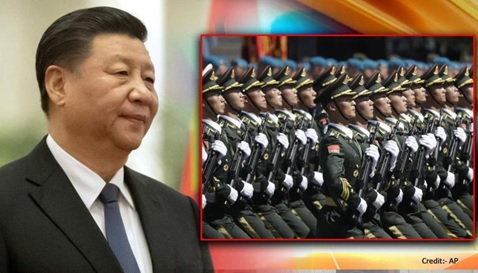
2023 Chinese Military Strength Ranking
Global Firepower Rank Of PLA
As per the Global Firepower Index 2023, The People’s Liberation Army (PLA) of China was ranked as the world’s largest military force by the Global Firepower Index.
The Global Firepower Index is a ranking system that assesses the military strength of countries based on factors such as the size of their military personnel, the amount and types of weapons they possess, and their logistical capabilities.
As per the Global Firepower Index 2023, China was ranked as the world’s third most powerful military overall, behind only the United States and Russia. However, China’s large military personnel and vast inventory of weapons helped it secure the top spot in the index’s ranking of the world’s largest militaries.
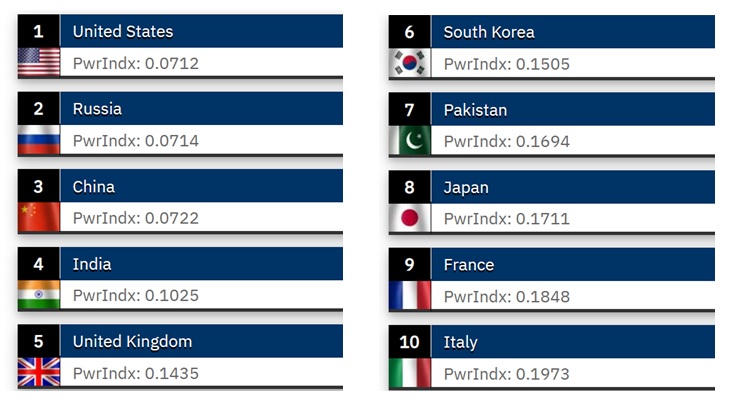
Modern People’s Liberation Army ( PLA )
The People’s Liberation Army (PLA) is the military organization of the People’s Republic of China. The modern PLA has evolved significantly since its establishment in 1927, and it is now one of the largest and most technologically advanced militaries in the world.
In recent years, the modern PLA has undergone a significant modernization effort aimed at transforming it into a more agile, flexible, and technologically advanced force. Today, the modern PLA is a highly capable and sophisticated military organization that is rapidly evolving to meet the challenges of the modern world.
This modernization effort has involved a number of key initiatives, including:
- Restructuring: The PLA has undergone significant restructuring aimed at streamlining its command structure and improving its ability to respond to modern threats. This has involved reducing the number of military regions from seven to five and creating a new joint command system.
- Technological modernization: The PLA has invested heavily in modernizing its technological capabilities, including developing new advanced weapon systems such as stealth fighters, aircraft carriers, and missile defense systems.
- Training and education: The modern PLA places a strong emphasis on training and education, with a particular focus on joint training exercises and improving the professionalism of its personnel.
- Cyber warfare: The PLA has developed significant capabilities in cyber warfare, with a particular focus on offensive operations.
- International engagement: The modern PLA has increased its engagement with other militaries around the world, participating in joint exercises and training programs with other countries.
Peoples Liberation Army ( PLA )
History Of People’s Liberation Army ( PLA )
The PLA traces its roots back to the Chinese Civil War of 1927-1949, which pitted the Nationalist Party (Kuomintang) against the Communist Party of China (CPC). The CPC established the Red Army in 1927 as a guerrilla force to fight the Nationalist Party. The Red Army, under the leadership of Mao Zedong, quickly gained popularity and support among peasants and workers, allowing it to expand its operations and form new units.
In 1934, the Red Army embarked on the famous Long March, a strategic retreat to evade Nationalist forces. The Long March covered more than 6,000 miles and lasted for over a year, during which the Red Army suffered heavy losses due to hunger, disease, and battle. However, the march solidified the Red Army’s unity and ideological commitment, laying the foundation for its eventual victory over the Nationalists.
Following the end of World War II, the Chinese Civil War resumed. The Red Army, now renamed the People’s Liberation Army, waged a series of successful campaigns against the Nationalist forces, culminating in their capture of the capital city of Beijing on October 1, 1949. This event marked the establishment of the People’s Republic of China, with Mao Zedong as its first chairman.
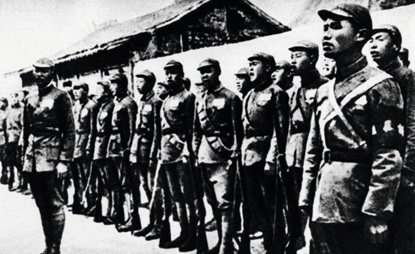
Under Mao’s leadership, the PLA underwent significant reforms and modernization, including the introduction of Soviet-style military training and tactics. The PLA’s focus shifted from guerrilla warfare to conventional warfare, with an emphasis on large-scale operations and firepower. The PLA also played a key role in China’s foreign policy, supporting communist insurgencies and revolutionary movements in Asia, Africa, and Latin America.
During the 1960s and 1970s, the PLA became embroiled in China’s Cultural Revolution, a period of political turmoil and violence orchestrated by Mao Zedong. The PLA was tasked with suppressing dissent and enforcing ideological conformity, resulting in widespread human rights abuses and the deaths of thousands of people.
After Mao’s death in 1976, the PLA underwent significant changes, with a shift towards modernization and professionalization. Deng Xiaoping, the architect of China’s economic reforms, saw the PLA as a key component of China’s modernization and sought to modernize its equipment and training. The PLA’s focus shifted towards high-tech weapons systems and specialized units, such as special forces and cyber warfare units.
Peoples Liberation Army ( PLA )
PLA General Information
 | People's Liberation Army ( PLA ) | Details |
 | Military Service Mark Of The People's Liberation Army | Military Service Mark Of The People's Liberation Army |
 | PLA Founded On | 1 August 1927 |
Chinese Army PLA Army Active Personnel | 2,035,000 | |
Chinese Army PLA Army Reserve Personnel | 510,000 | |
 | PLA Governing Body | Central Military Commission (CMC) |
PLA - Organization | PLA Consists Of Five Service Branches | Ground Force Navy Air Force Rocket Force Strategic Support Force |
PLA - Navy | PLA Navy Active Personnel | 300,000 |
PLA - Air Force | PLA Air Force Active Personnel | 400,000 |
PLA Headquarter | PLA - Headquarter | August First Building (Ceremonial) |
PLA Organization
People's Liberation Army (PLA) Theater Commands
The People’s Liberation Army (PLA) of China is divided into five military regions, also known as military districts or theater commands, each responsible for a specific geographic area of China
In 2021, China reorganized its military command structure, and the five military regions were replaced by five theater commands, each with a broader strategic focus beyond just defense.
- Eastern Theater Command: This military district is responsible for the defense of China’s eastern coastal areas, including Shanghai, Shandong, and Fujian provinces.
- Southern Theater Command: This military district is responsible for the defense of China’s southern coastal areas, including Guangdong, Guangxi, and Hainan provinces.
- Western Theater Command: This military district is responsible for the defense of China’s western border areas, including Tibet, Xinjiang, and parts of Inner Mongolia.
- Northern Theater Command: This military district is responsible for the defense of China’s northern border areas, including Liaoning, Jilin, and Heilongjiang provinces.
- Central Theater Command: This military district is responsible for the defense of China’s central regions, including Henan, Hubei, and Anhui provinces.
Disclaimer
This page is not a official website of People’s Liberation Army (PLA) . The link to the official PLA page is mentioned in the references. The information compiled on this page is only for education purpose sourced from the information available in the public domain.

